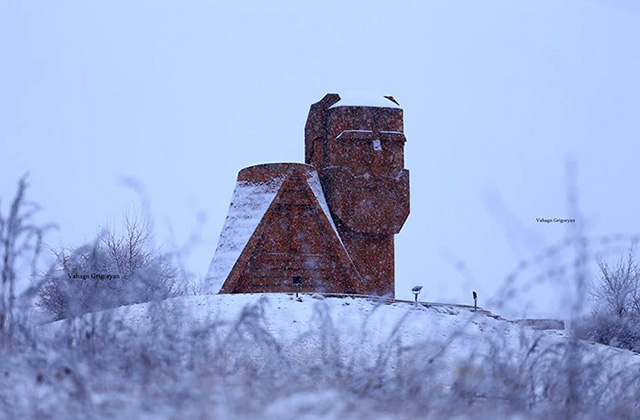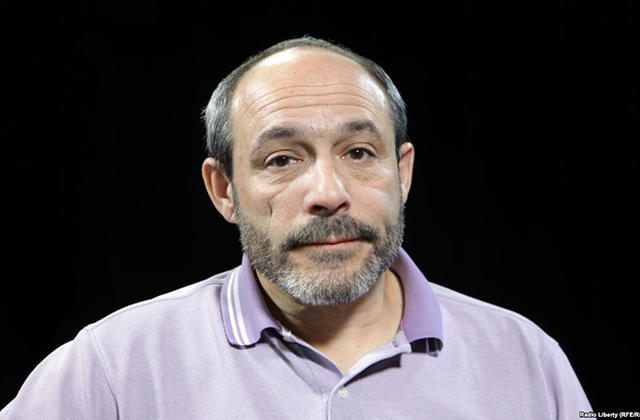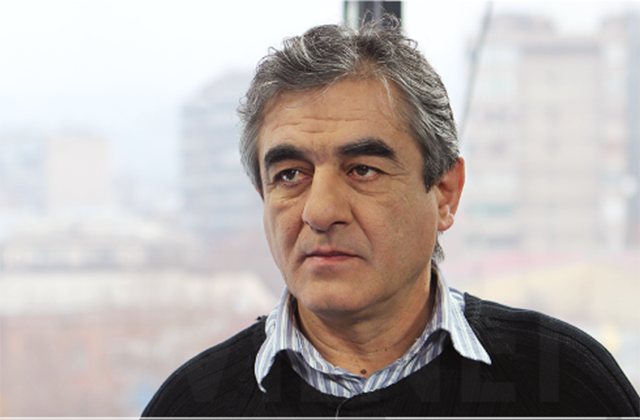Referendum of international importance in Artsakh: what issue should authorities of Artsakh settle?

The third referendum of national importance was launched in Artsakh two days ago based on NKR law and NKR new Electoral Code, which came into force on January 1, 2015. If the concept of Constitutional reforms is confirmed, Artsakh will adopt presidential system, despite the circumstance that prior to the April War, basically NKR authorities on the tracks of Armenia also wanted Artsakh to pass on to parliamentary system, meanwhile the April War urged the authorities change their decision in favor of presidential system, which will strengthen the president’s institute in NKR.
Despite NKR president Bako Sahakyan clarified the purpose of this referendum, qualifying it as a legal culture directed to building country’s life, provision of vital activity, and the discourse developing in NKR for months, serious protest wave against the initiated process, OSCE MG Co-Chairs don’t deny either that Constitutional reforms are a form of organizing public life, not denying that people of Artsakh have that right. It’s noteworthy that these days OSCE MG Co-Chairs Igor Popov, Stephane Visconti and Richard Hoagland issued a statement based on the results of the meeting in Munich, reflecting to upcoming Constitutional change as well.
“The Co-Chairs are aware that a so-called constitutional referendum is scheduled to take place in Nagorno-Karabakh on February 20, 2017. Although the Co-Chairs note that the de-facto Nagorno-Karabakh authorities view the use of such a procedure as an effort to organize the public life of their population, they underscore again that no countries, including Armenia and Azerbaijan, recognize Nagorno-Karabakh as an independent and sovereign state,” the statement reads.
Accordingly, OSCE MG Co-Chairs stated that they don’t accept the results of the referendum on February 20 as affecting the legal status of Nagorno-Karabakh.
The Co-Chairs also stressed that the results in no way prejudge the final status of Nagorno-Karabakh or the outcome of the ongoing negotiations to bring a lasting and peaceful settlement to the Nagorno-Karabakh conflict. Russian Foreign Ministry reflected to this issue as well stating,
“We do not recognize Nagorno-Karabakh as an independent state. We consider that its status should be determined through political talks in the framework of the Minsk process. At the same time, we do not believe that peaceful settlement could depend on holding the above mentioned ‘constitutional referendum.’”
Although OSCE MG doesn’t accept results of Constitutional referendum in Artsakh, a group of MEPs, Western and Russian figures from a few dozens of countries arrived in Artsakh to implement observation mission. MEP Eleni Theocharous, who was in Artsakh those days, stated that people, who sacrifice their lives for freedom, will do their best for democracy as well. MEPs Frank Engel, Jaromír Štětina welcome democracy processes in Artsakh, including referendum and its necessity.
According to Sergey Minasyan, Deputy Director of the Caucasus Institute, not a single organization attempts to cast doubt on Constitutional referendum held in Artsakh.
Minasyan considers all the processes going on in NK—both elections and Constitutional referendum, as well as all other processes, which this or that way have an effect on NK state-building processes, will directly or indirectly impact on negotiation results. In his words, the fact that such process is taking place in Artsakh is much more important than the statements.
Vadim Dubnov, Russian diplomat, political analyst at “Echo of the Caucasus” (Prague), told “168 Hours” that he considers justified the statement issued by Russian Foreign Ministry on referendum. Moreover, he considers it regards referendum as a component of all-Armenian political system development. According to him, in this sense all political changes, which this referendum will fix, will be another fact on that universal political system. He believes in this sense all political changes, which this referendum will fix, will be another fact on that global political space.

Dubnov considers in case of launching political events in Artsakh it’d be correct touching upon from the perspective of international law. “If we observe international law and unsettled NK conflict, referendum means nothing from the perspective of NK international status. This has importance for Armenia regarding NK status. Non-formally NK is introduced as Armenia’s region, and currently confirmation of that non-formal status is taking place,” political scientist Dubnov said, hinting recent process of Constitutional change in Armenia and its connection to the processes in Artsakh.
He believes that this won’t have any implication, influence on the outcome of negotiations, as a result of negotiations other processes are planned, which will clarify final status.
Manvel Sargsyan, Head of Armenian Center for Strategic and National Research, told “168 Hours” that he both agrees and disagrees with Dubnov’s allegation. He stated that there are many issues regarding this topic.
In his words one of them is that although different assessments are heard, where not so pleasant assessments are given on the process of Constitutional reforms in Artsakh, the circumstance that opinions, assessments are heard, is definite, and this shows that any national election or referendum in Artsakh, of course, has international importance.

“If it didn’t have that importance, anyone wouldn’t reflect to that. We just should be interested in the circumstance why and what assessments are given: these changes aren’t definitely assessed, they’re generalized. We can state a rather crucial circumstance, no one denies the right of Artsakh to hold such events, this is rather essential, everybody understands that the authorities of Artsakh organize such political processes aiming to provide Artsakh’s stability, orderliness and manageability.
It becomes clear from the statements of Russian Foreign Ministry, OSCE MG Co-Chairs, that NK isn’t recognized as an independent state, and it can’t have an effect on peaceful negotiations and can’t predetermine country’s status. This is a rather concrete assessment, which also proves that this has big importance.
Likewise comments heard in 2006 as well, when Constitution was being adopted in Karabakh, then in case of presidential, parliamentary elections. They speak of the fact that they don’t want to recognize the result,” Sargsyan said.
However, in his words, naturally, such events will be reflected in NK final status, as when a state settles its political life, holds such events, with time it has more and more importance for the international community. Thus, he believes that it’s important to hold it properly.
“It’s essential that observers have arrived to Nagorno Karabakh. Why did they arrive? Thus, this is an international event.”
By Araks Martirosyan

























